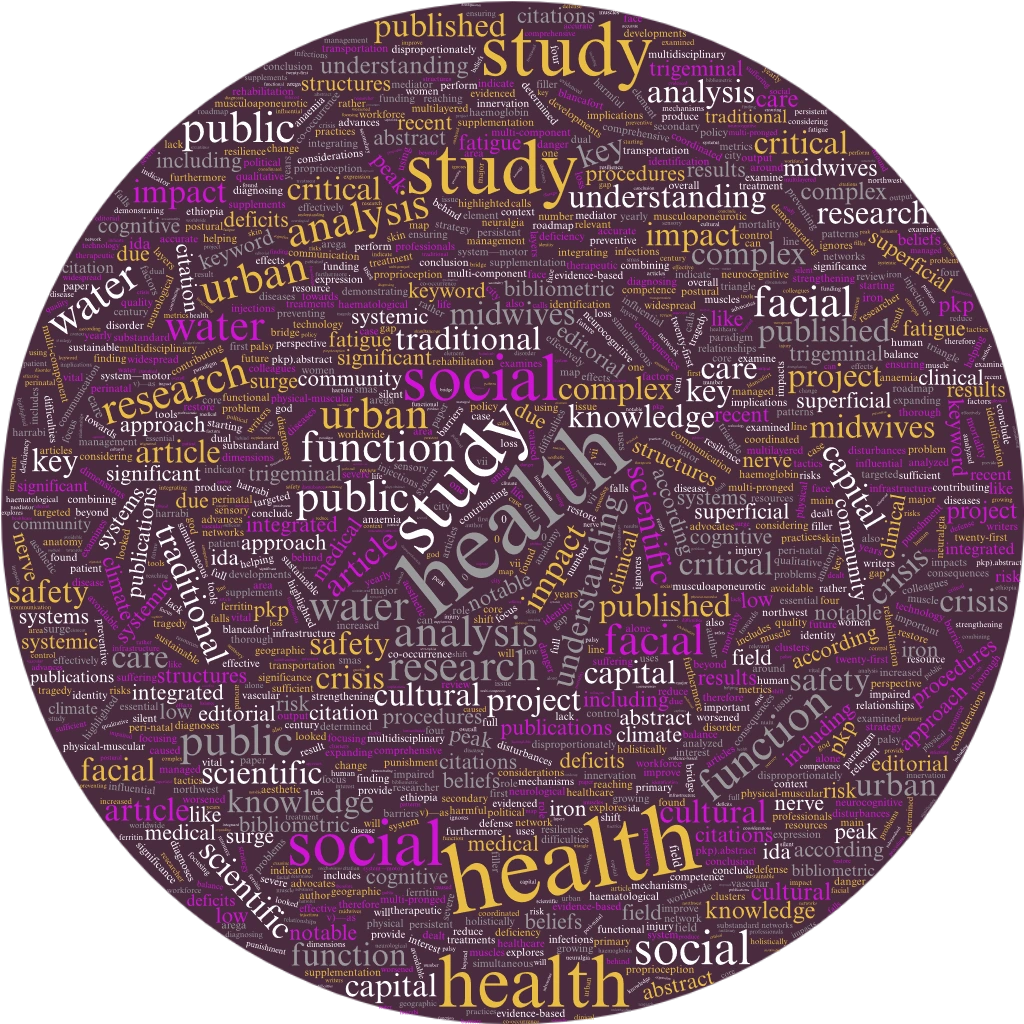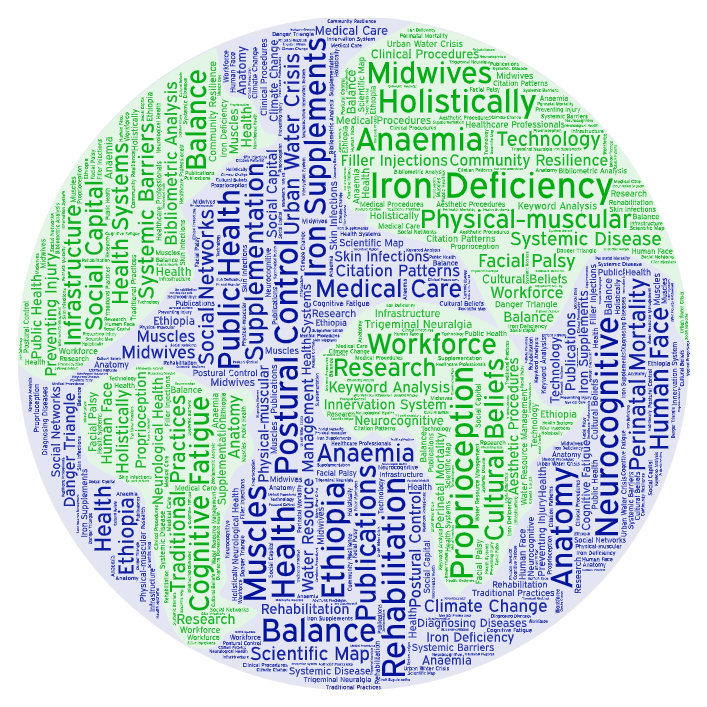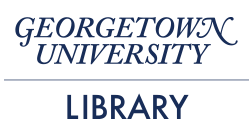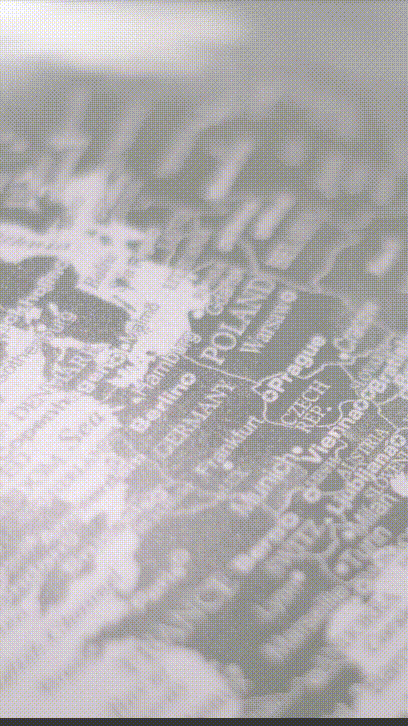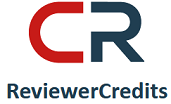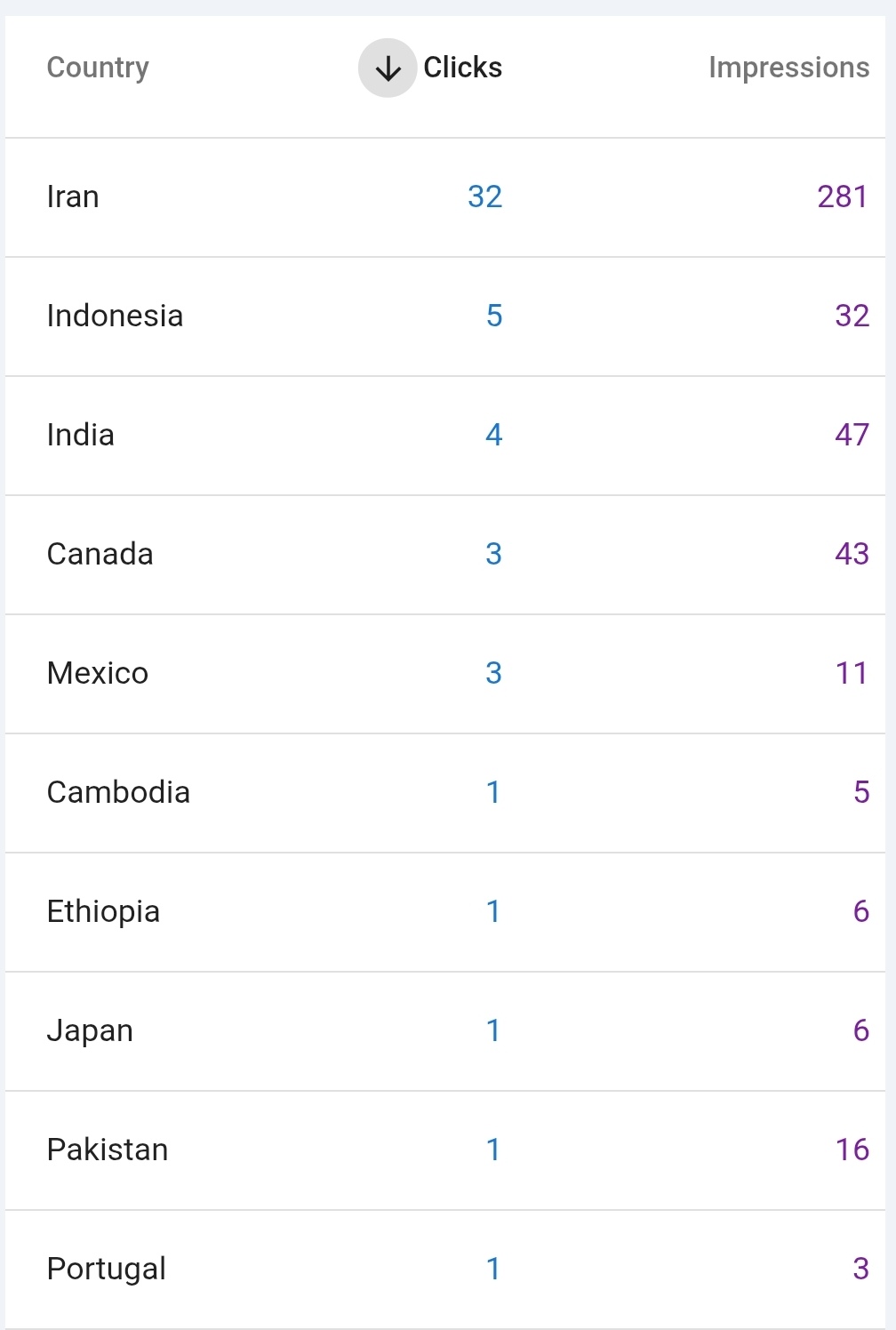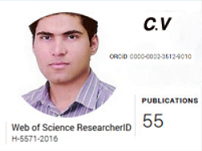Successful Intelligence, Resilience, and Self-Control: Bibliometric Analysis of Links to Adolescent Female Social Health
Social Health Determinants in Female Adolescents: A Bibliometric Study
DOI:
https://doi.org/10.1000/w8k82e06الكلمات المفتاحية:
successful intelligence, resilience, self-control, social health, adolescent girls, bibliometric analysis.الملخص
The social health of adolescent women is a complex concept which depends on their behavioral, emotional and cognitive resources. Although self-control, resilience (also called vitality) and successful intelligence are recognised as critical psychological traits, little is known about how they interact to influence the social health of young women, particularly when analyzed through bibliometric data. This study integrates empirical and theoretical data to examine how these three constructs together predict social well-being among adolescent women. Drawing on the Keyes-Sternberg developmental framework, the Sternberg theory of successful intelligence and synergistic interactions between resilience (β = 0.265), self-control (β = 0.447) and successful intelligence (β = 0.289), this interaction accounts for over 53 percent of the variation in social outcomes (R2 = 0.538, p<0.001). The results highlight the need for comprehensive, gender-sensitive educational interventions that simultaneously improve behavioral control, emotional stability and cognitive flexibility. This paper also identifies important gaps in the literature, such as the lack of a longitudinal design, reliance on self-reported measures and lack of cultural diversity in the design and research trends linking these constructs to the social well-being of young women. In addition, it supports bibliometric mapping
التنزيلات
المراجع
Aberha, F., Thupayagale-Tshweneagae, G., Honest, F., & Tezera, T. (2025). Resilience and social influences on adolescent pregnancy prevention in Addis Ababa, Ethiopia. World Journal of Public Health. https://doi.org/10.11648/j.wjph.20251003.26
Bornmann, L., & Mutz, R. (2015). Growth rates of modern science: A bibliometric analysis based on the number of publications and cited references. Journal of the Association for Information Science and Technology, 66(11), 2215–2222. https://doi.org/10.1002/asi.23329
Calmeiro, L., Camacho, I., & Matos, M. G. (2018). Life satisfaction in adolescents: The role of individual and social health assets. The Spanish Journal of Psychology, 21, e24. https://doi.org/10.1017/sjp.2018.24
Connor, K. M., & Davidson, J. R. T. (2003). Development of a new resilience scale: The Connor-Davidson Resilience Scale (CD-RISC). Depression and Anxiety, 18(2), 76–82. https://doi.org/10.1002/da.10113
Garisch, J. A., & Wilson, M. (2015). Prevalence, correlates, and prospective predictors of non-suicidal self-injury among New Zealand adolescents: Cross-sectional and longitudinal survey data. Child and Adolescent Psychiatry and Mental Health, 9(1), 1–13. https://doi.org/10.1186/s13034-015-0055-6
García-Martínez, I., Gávan-Chocano, Ó., Molero López-Barajas, D., & León, S. P. (2023). Analysing university students’ life satisfaction through their socioemotional factors. Revista de Investigación Educativa, 41(2), 387–402. https://doi.org/10.6018/rie.496341
Hamdan, F. R. (2022). Reducing social anxiety and boosting self-esteem among adolescent girls: The impact of a behavioral-cognitive counselling programme. Perspectives of Science and Education, 17(6), 210–222. https://doi.org/10.32744/pse.2023.6.21
Keyes, C. L. M. (1998). Social well-being. Social Psychology Quarterly, 61(2), 121–140. https://doi.org/10.2307/2787095
Llistosella, M., Goi-Fuste, B., Martín-Delgado, L., Miranda-Mendizábal, A., Franch-Martínez, B., Ortiz, C., & Castellví, P. (2023). Effectiveness of resilience-based interventions in schools for adolescents: A systematic review and meta-analysis. Frontiers in Psychology, 14, 1211113. https://doi.org/10.3389/fpsyg.2023.1211113
Mayor-Silva, L. I., Moreno, G., Meneses-Monroy, A., Martín-Casas, P., Hernández-Martín, M. M., Moreno-Pimentel, A., & Rodríguez-Leal, L. (2025). Influence of gender role on resilience and positive affect in female nursing students: A cross-sectional study. Healthcare, 13(3), 336. https://doi.org/10.3390/healthcare13030336
Moffitt, T. E., Arseneault, L., Belsky, D., Dickson, N., Hancox, R. J., Harrington, H., Houts, R., Poulton, R., Roberts, B. W., Ross, S., Sears, M. R., Thomson, W. M., & Caspi, A. (2011). A gradient of childhood self-control predicts health, wealth, and public safety. Proceedings of the National Academy of Sciences, 108(7), 2693–2698. https://doi.org/10.1073/pnas.1010076108
Munawaroh, E., Sutoyo, A., Arinata, F. S., Karomah, A., Damayanti, S., & Nitami, L. Z. (2024). The protective factors of bullying victimization experiences on mental health among adolescents: A decade of systematic review. Konselor, 13(1), 1–12. https://doi.org/10.24036/0202413262-0-86
Romer, N., Ravitch, N. K., Tom, K. M., Merrell, K. W., & Wesley, K. L. (2011). Gender differences in positive social-emotional functioning. Psychology in the Schools, 48(10), 1049–1062. https://doi.org/10.1002/pits.20604
Rodríguez-Ledo, C., Orejudo, S., Cardoso-Moreno, M. J., Balaguer, Á., & Zarza-Alzugaray, F. J. (2018). Emotional intelligence and mindfulness: Relation and enhancement in the classroom with adolescents. Frontiers in Psychology, 9, 2162. https://doi.org/10.3389/fpsyg.2018.02162
Sternberg, R. J. (2003). Wisdom, intelligence, and creativity synthesized. Cambridge University Press.
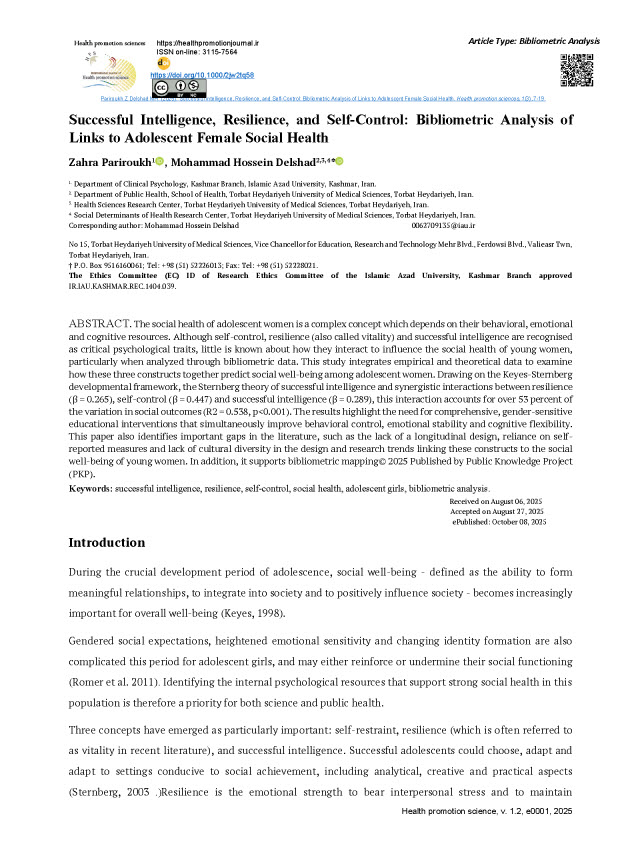
التنزيلات
منشور
الرخصة
الحقوق الفكرية (c) 2025 Creative Commons Attribution-NonCommercial 4.0 International License

هذا العمل مرخص بموجب Creative Commons Attribution-NonCommercial-NoDerivatives 4.0 International License.
This open-access journal is published under the terms of the Creative Commons Attribution-NonCommercial 4.0 International License which permits Share (copy and redistribute the material in any medium or format) and Adapt (remix, transform, and build upon the material) under the Attribution-NonCommercial term
كيفية الاقتباس
##plugins.generic.shariff.share##
##plugins.generic.funding.fundingData##
-
Islamic Azad University
##plugins.generic.funding.funderGrants## IR.IAU.KASHMAR.REC.1404.038;Grant numbers Thesis number in the university system (research code): 162940173;Code of Ethics: IR.IAU.KASHMAR.REC.1404.039








